SUMMARY
This is AI generated summarization, which may have errors. For context, always refer to the full article.
![[OPINION] The Philippines must not neglect volunteerism](https://www.rappler.com/tachyon/2021/02/civic-engagement-volunteerism-February-10-2021.jpg)
The recently released Democracy Index 2020 once again positioned the Philippines as a “flawed” democracy.
In 54th place, the country is still doing better than Singapore, which is in the 74th position, but then again, the island city-state has never been a world standard in this particular case.
While scoring high in terms of electoral processes and political participation, the Philippines’ democratic health suffered in terms of political culture and government functions, and just got a passing grade when it comes to civil liberties.
Last year, the Philippines’ ranking was not much different, at 53rd place, and had only slightly higher scores in the area of civil liberties.
Freedom House’s own index, the Freedom in the World report, also portrayed the Philippines in a similar way: a country where “the rule of law and application of justice are haphazard and heavily favor political and economic elites.”
Uplifting a nation’s democratic credentials depends on a host of factors, and the commitment of national political leadership ultimately is essential. But at the same time, bottom-up approaches, those coming from the citizenry, media, and civil society, do also make a difference.
The great post-COVID reset, as evoked by many pundits, won’t happen unless we also rethink how citizens are represented beyond traditional elections, and how they can express their ideas and opinions.
I am not referring to the so-called “People Power” movements that the Philippines has experienced so many times. The focus here is on issues- based deliberation processes that would empower citizens to have a voice and channel their opinions.
There is no a major speech in which the United Nations General Secretary Antonio Guterres does not call for a new social contract between the government and the citizenry. And while people’s assemblies, dealing with different issues including climate change, have been set up, they are mostly within western countries.
The Philippines underwent some phony experiences in the past, such as when President Marcos called for the creation of citizens’ assemblies in order to gain the people’s perspective on the new Constitution and the continuation of martial law.
It was a flawed experiment designed by an authoritarian regime trying to further extend its power (but had nevertheless left a mark in the 1987 Constitution, as pointed out by Dr Raul C. Pangalangan in a paper about restoring democratic participation and accountability in the country).
Other initiatives mobilizing peoples’ voices, including the 2014 people’s initiative against the pork barrel, have also been highly charged politically.
Could we, instead, re-imagine the approach as more issues-based and more localized, with people involved in solving local issues? Such localized forms of engagement won’t be an impediment to possible national mobilizations in the future, and could instead strengthen them.
Ultimately, we tend to forget that genuine people’s involvement in the life of a nation, normally referred to as civic engagement, goes back to the core fabric of society.
Arlene Mahinay, a senior expert and practitioner of peace-building in Mindanao with the international charity VSO, shares:
“I grew up in a very small town in the Visayas. I recalled that usually in the aftermath of a typhoon, almost everyone in my neighborhood, both men and women, young and old, on their own accord, without being asked by the government, and without considering any compensation, would congregate and together in the bayanihan spirit perform whatever tasks [needed] doing to [help] those who have been affected by the typhoon.”
Self-help is at the foundation of other forms of individual and collective engagement, starting from simple acts of kindness and solidarity, to more organized forms of help.
These actions could directly help to create more fertile terrain for more participatory public policies and shared decision-making, which takes more spontaneous and informal shapes rather than those dictated by the law.
Serving in the communities can lead to “deeper forms of community engagement,” helping create more awareness of the actions that need to be taken at a policy level to change the status quo.
Interestingly, the Philippines has created a unique framework to promote more conscious forms of solidarity: volunteerism.
The country boosts a strong volunteering “infrastructure,” and even has a law and a national body, the Philippine National Volunteer Service Coordinating Agency (PNVSCA), to act as facilitator and enabler.
There is no doubt that there are gaps on the ground, and civil society organizations and citizens alike could be better supported, but at least the Philippines has a very structured system, which most other countries in the region couldn’t even dream of.
The foundations are there, and now we need to invest more. Go mainstream. Do more.
The PNVSCA could perhaps brand itself with an easier, more catchy name, which could go a long way in helping empower the millions of youth in urban and rural areas and spark their interest in the affairs of the nation.
Volunteerism and overall civic engagement could also be important in helping reconcile areas of the country affected by unrest and conflict.
At the moment, some efforts are being made to mainstream volunteering locally, engaging public officials to harness volunteerism to achieve local development goals. Potentially this could be a game-changing exercise towards localizing the Sustainable Development Goals.
“Volunteering has indeed been prominently recognized and acknowledged as an important vehicle that can help in the achievement of the SDGs,” Mahinay says.
The Philippines should neither neglect nor overlook volunteerism, though effects won’t be immediate, and it will take time to reap the harvest.
Putting volunteerism at the center of post-pandemic reconstruction, making it central and more strategic to national planning, will require resources and strategic thinking.
But it is going to be essential because it can help the youth and other marginalized members of society to regain agency, confidence, and trust in their nation, the key tenets of a functional and vibrant democracy. – Rappler.com
Simone Galimberti is the co-founder of ENGAGE, and writes on social inclusion, volunteerism, youth development, regional integration, and the SDGs in the context of Asia Pacific.
Add a comment
How does this make you feel?
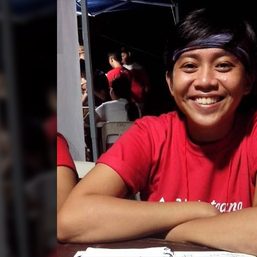

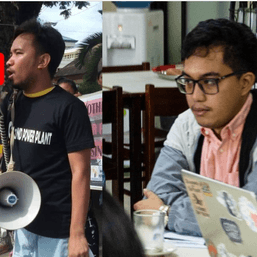
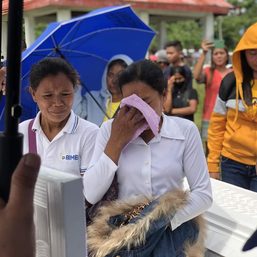
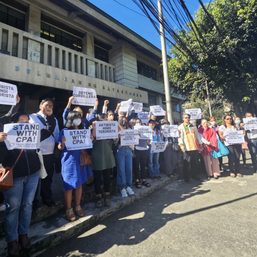

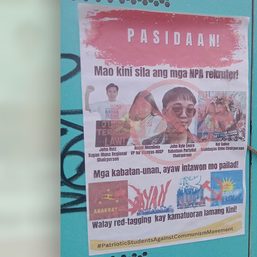
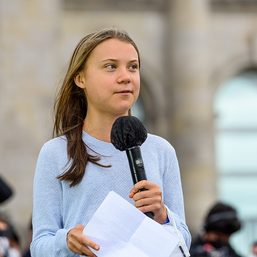
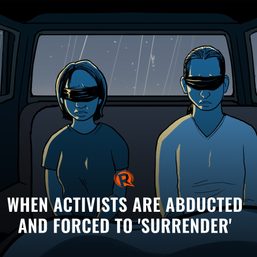
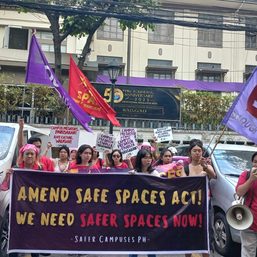
There are no comments yet. Add your comment to start the conversation.